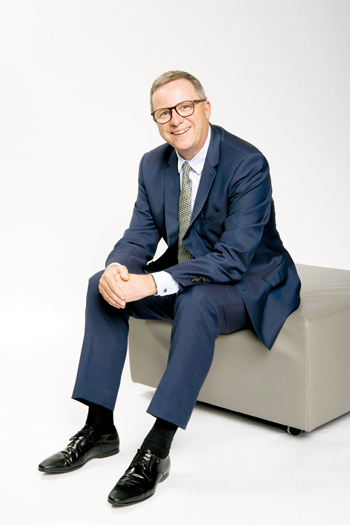Intercontinental Hotels Group (IHG) is expanding across the Middle East in a big way with as many as 25 hotels boasting 9,658 rooms in the pipeline.
'Our largest system size in the Asia Middle East and Africa (AMEA) region is in the Middle East, and we have a strong growth pipeline in the market. The Middle East represents over 30 per cent of our current system size (by number of rooms) in AMEA with 61 hotels in the GCC and 12 in the Levant,' says Pascal Gauvin, IHG chief operating officer, India, Middle East & Africa.IHG’s upcoming hotels include 11 in the UAE (2,990 rooms), seven in Saudi Arabia (4,965 rooms), two in Kuwait (364 rooms), two in Oman (550 rooms), two in Qatar (549 rooms) and one in Bahrain (240 rooms).Hotel Indigo is set to launch in the Middle East in the near future, he says. Hotel Indigo is IHG’s boutique brand, offering guests the individuality of a boutique hotel, but with the benefits and reassurance of one of the world’s largest hotel companies supporting it. Every property is designed to reflect the identity of its local neighbourhood and is unique to its surroundings. The beauty of Hotel Indigo is that no two hotels are the same, offering guests with a stay as unique as their travel destination.
 |
Gauvin ... strong growth |
'We signed our first Hotel Indigo in the region in 2012 with Hotel Indigo Riyadh King Abdullah Financial District. In 2014, we signed the first Hotel Indigo in the UAE – Hotel Indigo Dubai Business Bay and the second in May 2015 – Hotel Indigo Dubai The Sustainable City (TSC),' he says. Due to open in the first half of 2017, the 170-room Hotel Indigo Dubai The Sustainable City (TSC) will be part of Dubai’s first sustainable integrated development, the first community of its kind in the region.Globally, IHG’s strong momentum in 2015 was driven by a clear strategy and disciplined execution. 'We delivered our highest room openings since 2009, our best signings since 2008, 11 per cent underlying profit growth and 19 per cent underlying EPS growth.'In the Middle East, IHG was impacted by declining oil prices, ending the year up 0.2 per cent, however the group achieved significant milestones across the region. It opened four hotels in 2015 including the Holiday Inn Tabuk (100 rooms), the first hotel to be signed and opened under IHG’s MDA with DUR Hospitality Group; InterContinental Dubai Marina (150 rooms), home to Marina Social restaurant – Michelin-starred chef, Jason Atherton’s first in the Middle East; Holiday Inn Jeddah Gateway (200 rooms), its second in Jeddah; and Crowne Plaza Kuwait Thuraya City (210 rooms).'We will continue to build on our strengths across the Middle East– particularly in the UAE and Saudi Arabia. Our key goal is to ensure that we are the number one choice for our guests, employees and hotel owners in the region. We continue to invest in our people, our service and our brands to deliver on this goal,' he says.Gauvin says the current oil prices do impose pressure on the Middle East’s trade and economy, however, the medium to long-term prospects for the hotel industry remain good.The strength of IHG’s business model and its strong portfolio of preferred brands gives it the confidence to continue as planned on its Middle East pipeline.IHG launched its 2016 Trends Report at the World Economic Forum in Davos – Meaningful Membership: Transforming Membership in The Age of I, a desire from consumers to maximise both inclusiveness and individuality, fuelled by social media.The report challenges brands to engage with consumers in a way that makes membership meaningful for consumers and builds membership communities – know exactly what resonates with individual members of the community, their likes and dislikes, what they need and when they need it.To build a successful membership community outside, it is necessary to build meaningful membership inside. A corporate culture with a meaningful membership mind-set generates trust in the organisation’s brands. In IHG’s case this is achieved through a strong focus on training and building a service culture, to the benefit of its guests, he adds.
By K S Sreekumar


